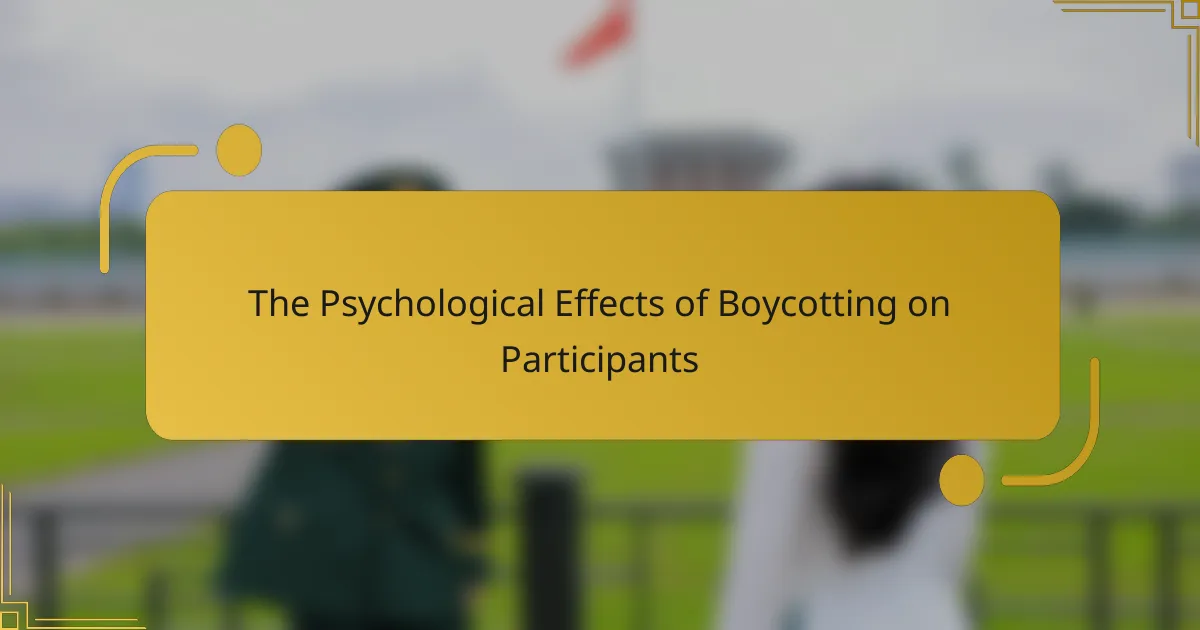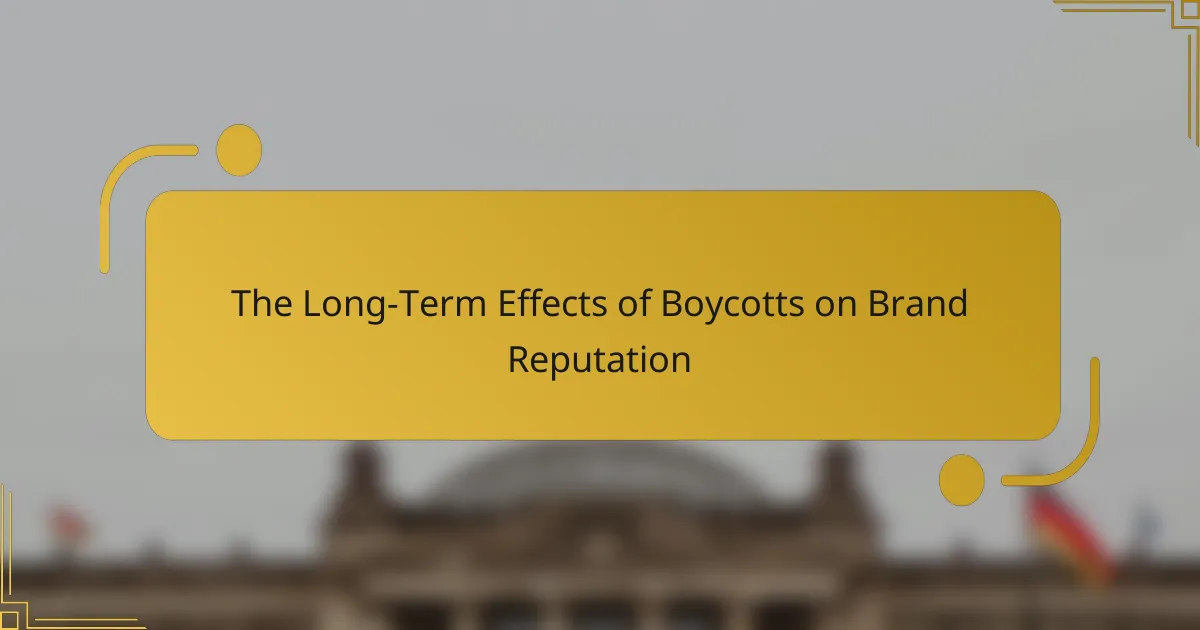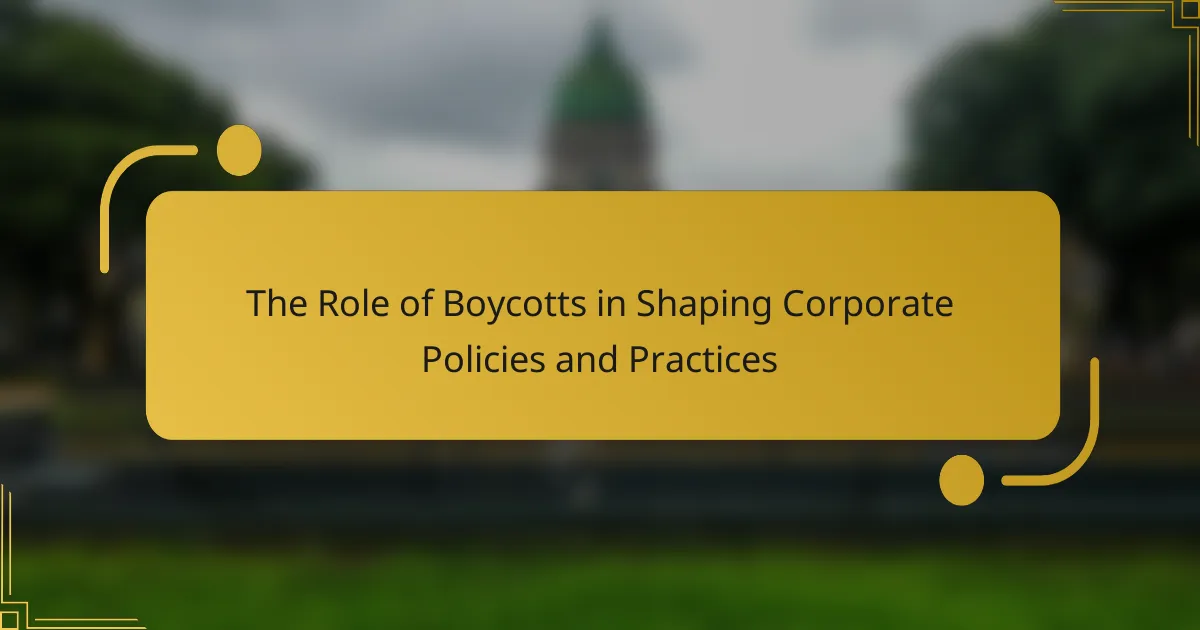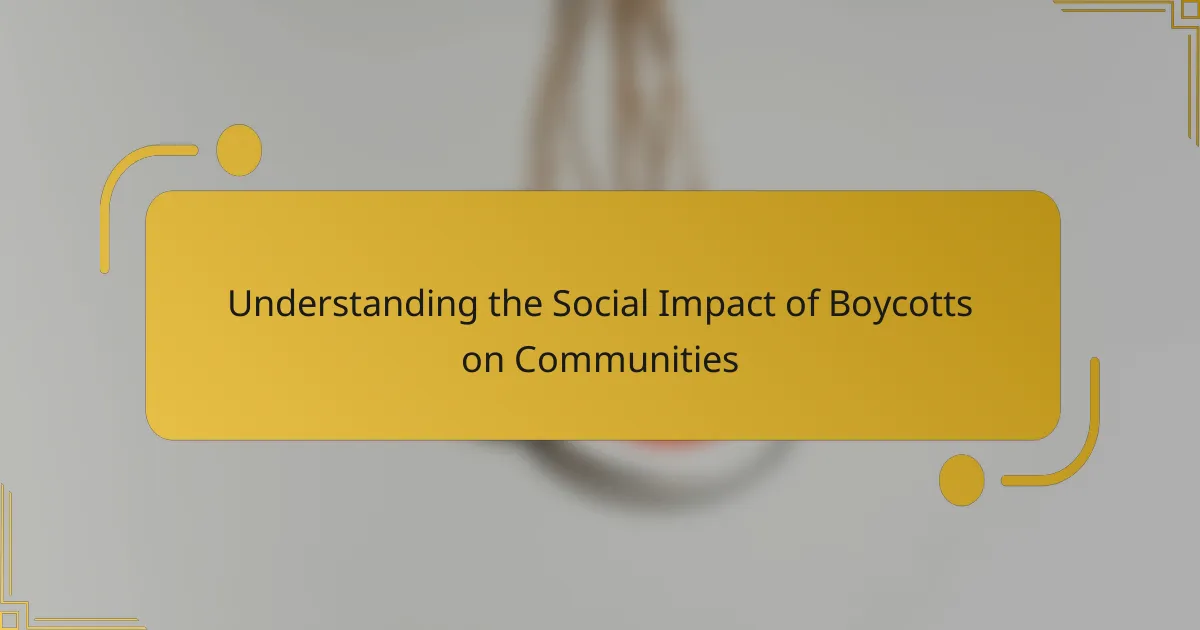The psychological effects of boycotting on participants can be profound, influencing their emotional well-being and social dynamics. While some may feel empowered and connected to a cause, others might experience stress, guilt, or anger depending on their motivations and the boycott’s outcomes. Understanding these emotional responses is crucial for addressing the mental health challenges that may arise during such collective actions.
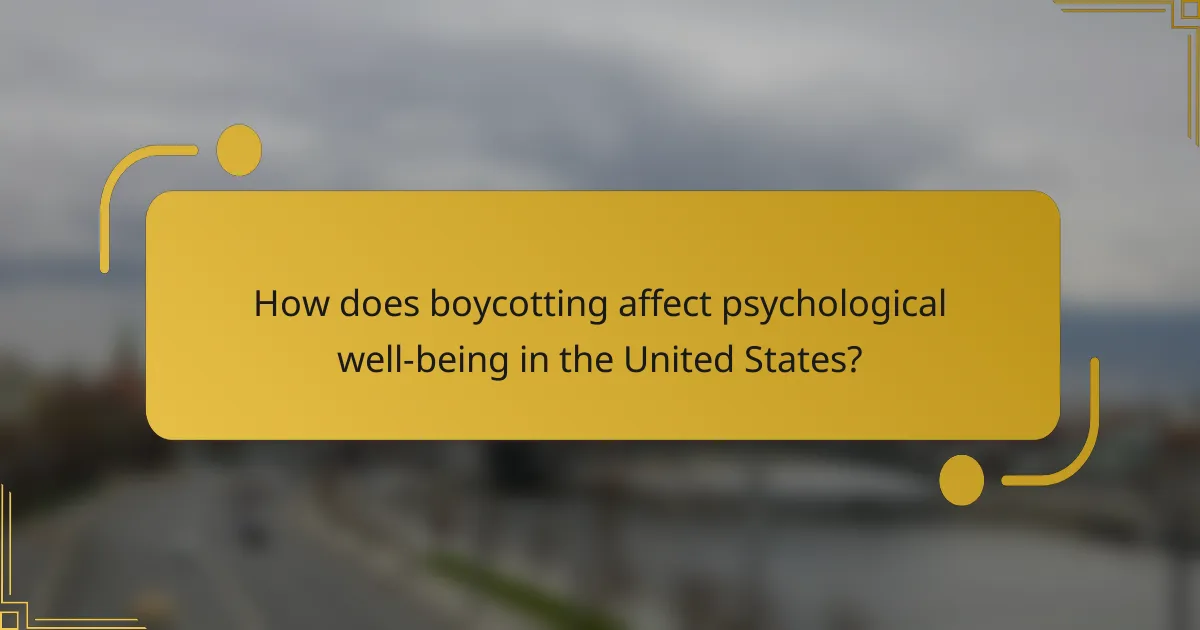
How does boycotting affect psychological well-being in the United States?
Boycotting can significantly impact psychological well-being in the United States by influencing stress levels, feelings of empowerment, social connections, and group identity. Participants may experience a mix of positive and negative emotions, depending on their motivations and the outcomes of the boycott.
Increased stress levels
Engaging in a boycott often leads to increased stress levels due to the emotional investment and potential backlash from opposing views. Participants may feel anxious about the consequences of their actions, especially if they face criticism from friends, family, or the public.
Additionally, the uncertainty surrounding the effectiveness of the boycott can contribute to feelings of frustration and helplessness. This stress can manifest in physical symptoms, such as headaches or sleep disturbances, affecting overall well-being.
Feelings of empowerment
On the positive side, boycotting can foster feelings of empowerment among participants. Taking a stand against perceived injustices can instill a sense of agency, as individuals feel they are actively contributing to a cause they believe in.
This empowerment can enhance self-esteem and motivate individuals to engage further in social activism. For many, the act of boycotting becomes a way to express their values and influence change, reinforcing their commitment to the cause.
Social isolation
While boycotting can create a sense of community among like-minded individuals, it may also lead to social isolation for some participants. Those who choose to boycott may find themselves distanced from friends or family who do not share their views, leading to feelings of loneliness.
This isolation can be particularly pronounced in communities where the majority does not support the boycott, making it challenging for individuals to find social support. Maintaining connections with supportive groups can help mitigate these feelings.
Group identity reinforcement
Boycotting often reinforces group identity among participants, as they unite under a common cause. This shared purpose can strengthen bonds within the group, fostering a sense of belonging and solidarity.
As individuals identify more closely with the group, they may feel more motivated to participate in collective actions, further enhancing their commitment to the cause. This reinforcement of group identity can provide emotional support and validation, which are crucial for psychological well-being during challenging times.
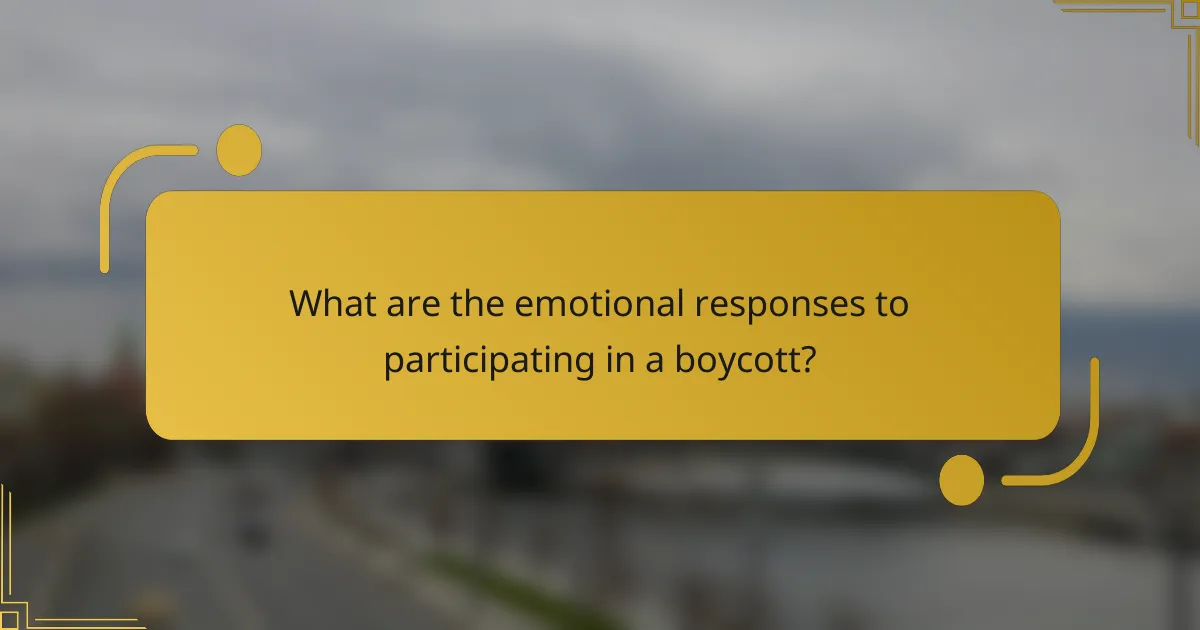
What are the emotional responses to participating in a boycott?
Participating in a boycott often triggers a range of emotional responses, including feelings of anger, guilt, and hope. These emotions can significantly impact participants’ mental well-being and their perception of the boycott’s effectiveness.
Anger and frustration
Anger and frustration are common emotional responses among boycott participants, often stemming from perceived injustices or unethical practices by the targeted entity. This emotional state can motivate individuals to take action but may also lead to burnout if sustained over time.
Participants might feel frustrated when their efforts do not yield immediate results or when they encounter opposition. It’s essential to manage these feelings by setting realistic expectations and focusing on long-term goals rather than immediate outcomes.
Guilt and regret
Guilt and regret can arise when participants feel they are not doing enough or when they perceive their actions as ineffective. This emotional response may lead to self-doubt, particularly if the boycott does not achieve its intended goals.
To mitigate these feelings, participants should remind themselves that collective action is often slow and that every contribution counts. Engaging in discussions with fellow participants can also help alleviate feelings of isolation and guilt.
Hope and optimism
Hope and optimism are crucial emotional responses that can sustain participants through challenging times. These feelings often emerge from a belief in the power of collective action and the potential for positive change.
Maintaining a hopeful outlook can be fostered by celebrating small victories and sharing success stories within the group. Participants should focus on the broader impact of their actions, reinforcing the idea that even small efforts can contribute to significant societal change.
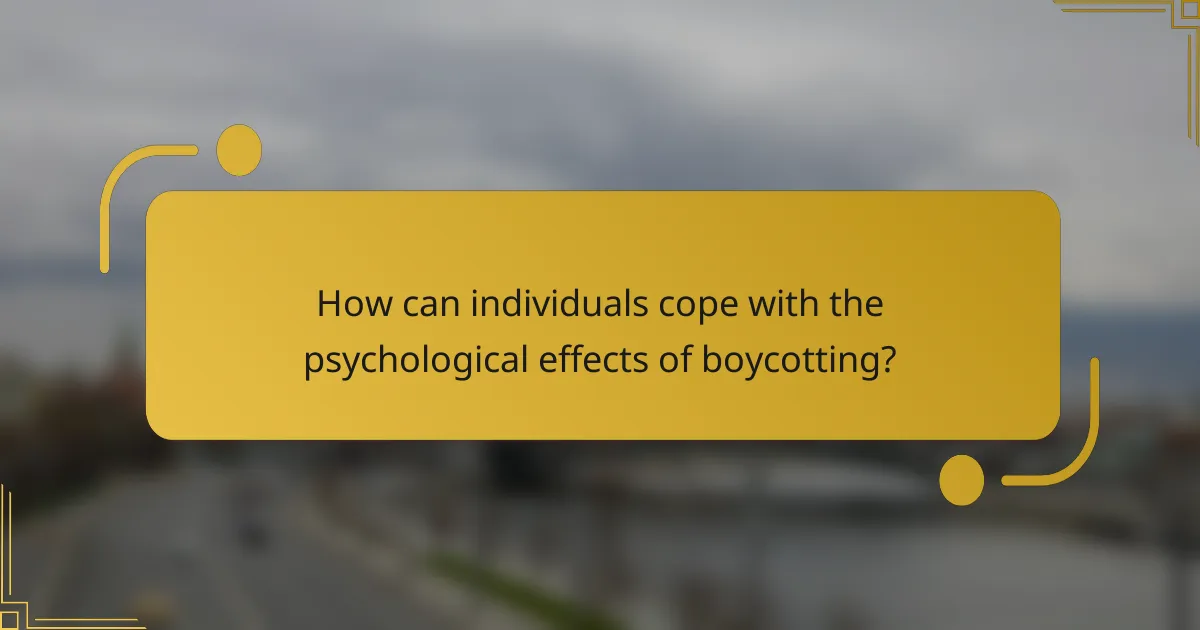
How can individuals cope with the psychological effects of boycotting?
Individuals can cope with the psychological effects of boycotting by engaging in community support, practicing mindfulness techniques, and seeking professional help. These strategies can help mitigate feelings of isolation, anxiety, and stress that may arise during a boycott.
Engaging in community support
Connecting with others who share similar values can provide emotional relief and a sense of belonging. Joining local or online groups focused on the boycott can foster solidarity and encourage collective action, which can be empowering.
Participating in community events, discussions, or forums can also help individuals process their feelings and experiences. This interaction can reinforce the purpose of the boycott and remind participants of their shared goals.
Practicing mindfulness techniques
Mindfulness techniques, such as meditation and deep breathing exercises, can help individuals manage stress and anxiety associated with boycotting. Regular practice can enhance emotional regulation and promote a sense of calm.
Incorporating mindfulness into daily routines, like setting aside a few minutes for reflection or gratitude, can improve overall mental well-being. Apps or local classes can provide guidance for those new to these practices.
Seeking professional help
If feelings of distress become overwhelming, seeking professional help from a therapist or counselor can be beneficial. Mental health professionals can offer coping strategies tailored to individual needs and circumstances.
Support groups led by professionals can also provide a safe space for individuals to share their experiences and feelings. This communal approach can help normalize the emotional challenges faced during a boycott and foster resilience.
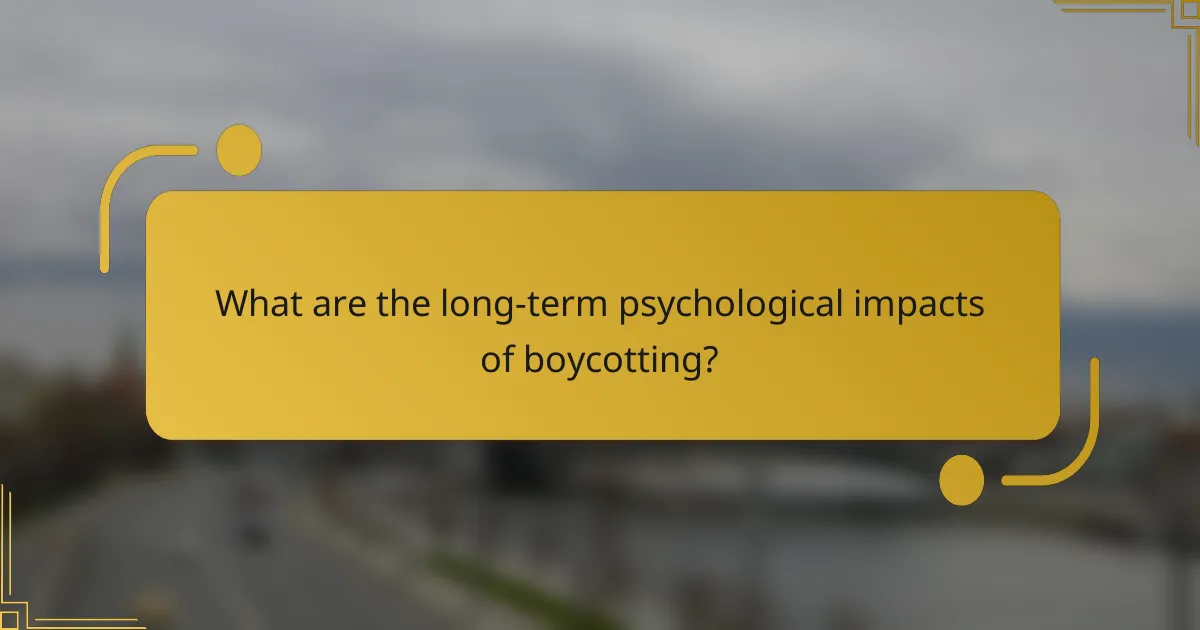
What are the long-term psychological impacts of boycotting?
The long-term psychological impacts of boycotting can include shifts in consumer behavior, changes in social relationships, and the development of a distinct activism identity. Participants may experience both positive and negative effects, influencing their future decisions and interactions.
Changes in consumer behavior
Boycotting often leads to significant changes in consumer behavior, as individuals may become more selective about the brands they support. This heightened awareness can result in a preference for companies that align with their values, potentially steering them towards ethical or sustainable options.
Additionally, boycotters might develop a habit of researching products and companies before making purchases, which can lead to more informed consumer choices. Over time, this shift can create a ripple effect, encouraging others to consider the implications of their spending habits.
Altered social relationships
Engaging in a boycott can alter social relationships, as individuals may find themselves at odds with friends or family who do not share their views. This divergence can lead to tension or conflict, especially if discussions about the boycott arise.
Conversely, boycotting can also foster new connections with like-minded individuals, creating a sense of community among participants. These new relationships can provide support and reinforce the values that motivated the boycott, enhancing the overall experience.
Development of activism identity
Participating in a boycott can contribute to the development of an activism identity, where individuals see themselves as advocates for social change. This newfound identity can empower participants, making them more likely to engage in future activism or advocacy efforts.
As individuals embrace this identity, they may become more vocal about their beliefs, influencing others and potentially leading to broader societal changes. This transformation can also enhance personal fulfillment, as individuals align their actions with their values and beliefs.
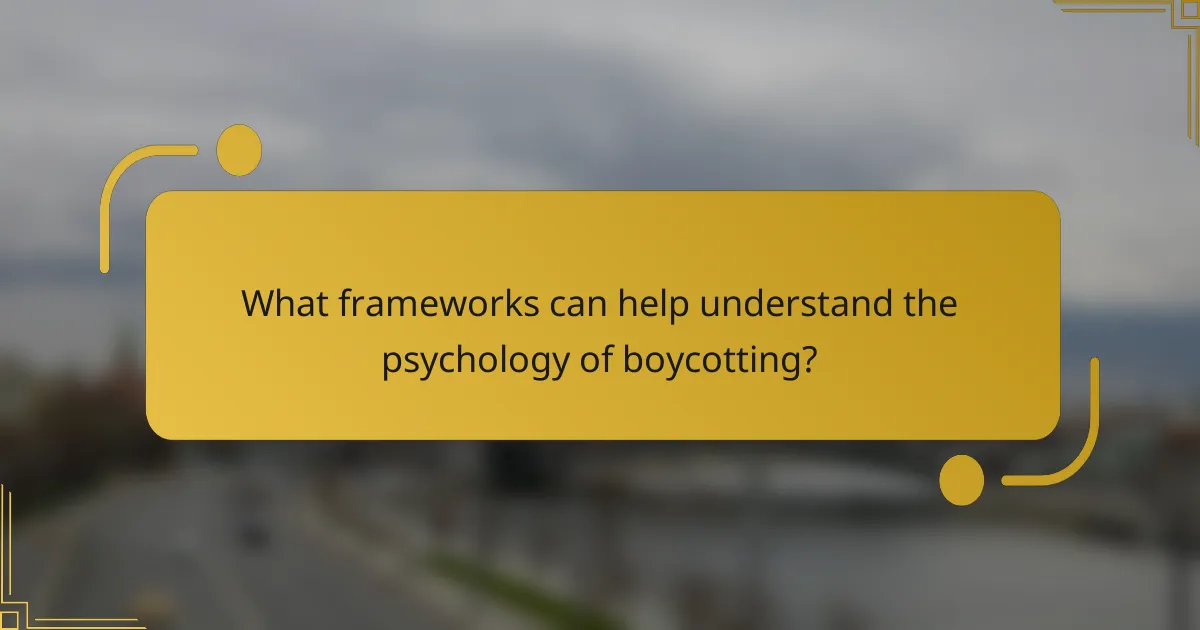
What frameworks can help understand the psychology of boycotting?
Understanding the psychology of boycotting can be enhanced through frameworks like social identity theory and cognitive dissonance theory. These frameworks explain how individuals’ beliefs and group affiliations influence their decision to participate in boycotts and the psychological effects that follow.
Social identity theory
Social identity theory posits that individuals derive a sense of self from their group memberships, which can significantly influence their behavior during boycotts. When people identify strongly with a group advocating for a boycott, they may feel compelled to participate to align with group norms and values.
This theory suggests that the stronger the identification with the group, the more likely individuals are to experience positive feelings of solidarity and belonging. However, it can also lead to negative emotions towards opposing groups, which may escalate tensions and conflict.
Cognitive dissonance theory
Cognitive dissonance theory explains the psychological discomfort that arises when individuals hold conflicting beliefs or behaviors. In the context of boycotting, participants may initially feel compelled to boycott due to social pressure or moral beliefs, but later experience dissonance if their actions do not align with their personal values.
To resolve this dissonance, individuals might change their beliefs about the boycott, justify their participation, or even intensify their commitment to the cause. This can lead to a stronger emotional investment in the boycott, but it may also result in increased stress if the individual feels their actions are not achieving the desired impact.
